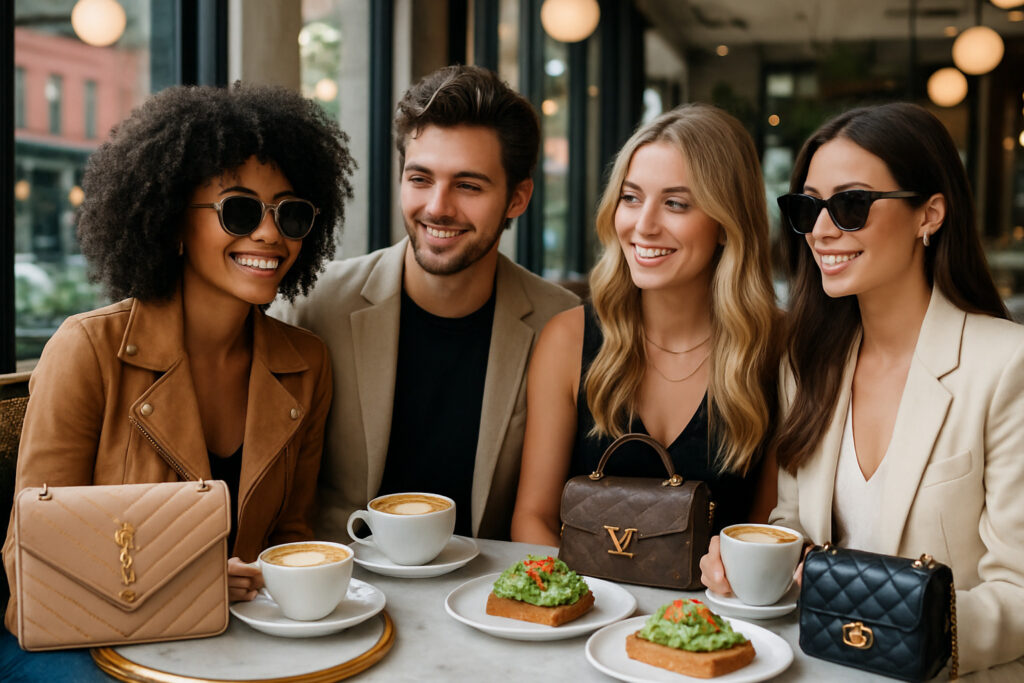Why Understanding Bougie Matters in Modern Culture
Bougie has become one of the most talked-about terms in modern slang, but its meaning goes far deeper than most people realize. Here’s what you need to know:
Quick Definition:
- Slang meaning: Someone who acts fancy, pretentious, or interested in luxury items
- Pronunciation: BOO-zhee (soft g sound)
- Origin: Shortened from French “bourgeois” meaning middle class
- First recorded: 1966 as a noun, 1968 as an adjective in African American Vernacular English (AAVE)
The word bougie actually has three completely different meanings. Most people know it as slang for someone who likes expensive things or acts snobbish. But it’s also a medical instrument used by doctors to dilate body passages, and historically referred to wax candles from the Algerian city of Bougie.
What makes this term so interesting? It started in the African American community during the 1960s civil rights era as a way to describe people who seemed to forget their roots while climbing the social ladder. The word exploded into mainstream culture through hip-hop, especially after Migos’ 2016 hit “Bad and Boujee.”
Today, calling someone bougie can be a compliment, an insult, or just a neutral description – it all depends on context and community. Some people accept being bougie as a badge of success, while others see it as a critique of materialism and pretension.
Understanding bougie helps us steer conversations about class, culture, and identity in America. Whether you’re scrolling through social media, listening to music, or just trying to understand what your friends mean when they call your skincare routine “bougie,” this guide will give you the full picture.
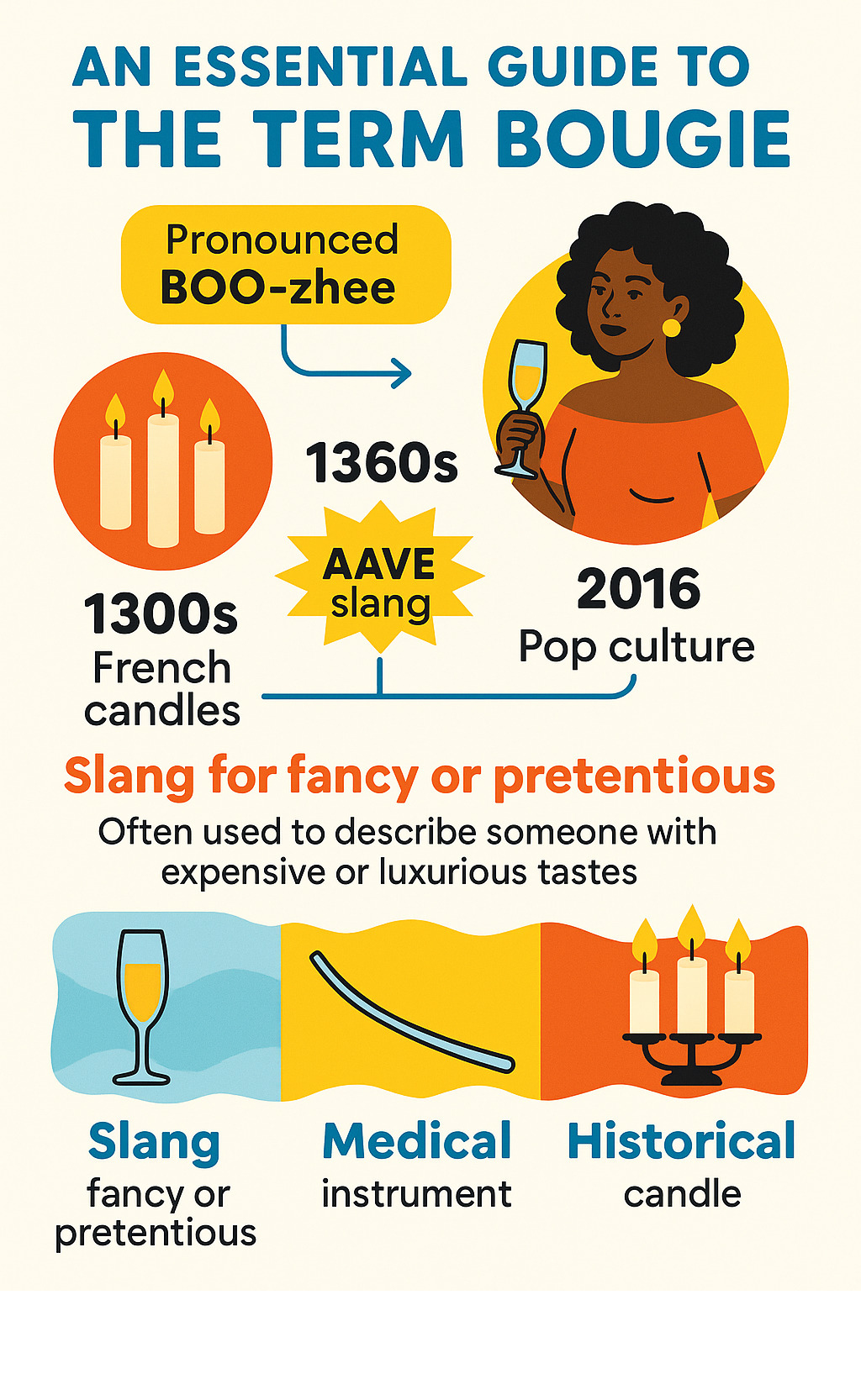
Bougie basics:
Understanding Bougie Through History
The story of bougie is like following a word on an incredible journey across centuries, continents, and cultures. From medieval trade routes to modern social media, this little word has collected meanings like a well-traveled passport collects stamps.
Let’s start where it all began – in the busy port city of Bougie, Algeria (now called Béjaïa). Back in medieval times, this city was the place to get premium wax candles. French merchants couldn’t get enough of these high-quality candles, and they started calling them “bougies” – literally meaning “from Bougie.” By 1300, the French were using the word for candle wax itself, and by 1493, any fancy candle could be called a bougie.
Meanwhile, the French developed another word entirely – “bourgeois.” This described the middle class, the folks who lived in towns and weren’t nobles or peasants. They were the shopkeepers, merchants, and craftspeople who formed the backbone of growing cities. Karl Marx later made this word famous in his writings about class struggle, describing the bourgeoisie as the capitalist class.
Here’s where things get interesting for our modern understanding. In 1732, English medical texts started using “bougie” to describe a thin, flexible medical instrument used to dilate body passages. These early medical tools were actually made from waxed linen – connecting right back to those original Algerian candles.
The real change happened in the 1960s. During the civil rights era, African American communities began shortening “bourgeois” to “bougie,” first as a noun in 1966 and then as an adjective in 1968. This wasn’t just linguistic evolution – it was social commentary during one of the most important periods in American history.
| Historical Period | Meaning | Usage Context |
|---|---|---|
| 1300s | Candle wax from Algeria | Trade and commerce |
| 1493 | Wax candles | Household items |
| 1732 | Medical instrument | Surgery and medicine |
| 1966-68 | Slang for bourgeois behavior | AAVE social commentary |
| 2016 | Mainstream pop culture term | Hip-hop and social media |
Bougie in Slang: How the Word Got Fancy
The change of bougie from French class analysis to American street slang tells us so much about language, culture, and what happens when communities create their own ways of talking about complex social realities.
Picture this: it’s the 1960s, and the civil rights movement is opening doors that had been locked for generations. Black Americans are entering universities, corporate offices, and suburban neighborhoods for the first time. With these amazing opportunities came some tricky social dynamics. How do you steer new spaces while staying true to your roots? What happens when success starts to change how you talk, dress, or act?
“Bougie” became the perfect word for these conversations. It wasn’t just about calling someone fancy – it was about calling out people who seemed to be putting on airs or forgetting where they came from. The word carried weight because it came from the community itself, not from outside observers.
Hip-hop culture picked up this usage and ran with it throughout the 1980s and 1990s. Artists used “bougie” to critique both the broader class system and dynamics within their own communities. The word had bite – it suggested someone was being fake, pretentious, or trying too hard to fit into spaces that might not accept them anyway.
Everything changed in 2016 when Migos dropped “Bad and Boujee.” Suddenly, everyone was using the term, from teenagers on TikTok to lifestyle bloggers describing their morning routines. This mainstream adoption brought visibility but also raised questions about cultural appropriation and whether the word’s original meaning was getting lost in translation.
Bougie in Medicine: The Original Tool
While most of us know bougie as slang, doctors have been using the medical version for nearly 300 years. A medical bougie is a cylindrical instrument that helps dilate or explore body passages, especially the esophagus, urethra, and other tubular structures.
Modern medical bougies are pretty sophisticated. Take the Maloney Tapered Tungsten-Filled Esophageal Bougie – it’s about 29½ inches long and comes in sizes from 20 French to 60 French units. The tungsten filling gives it just the right combination of flexibility and weight for controlled procedures.
These tools treat serious conditions like esophageal strictures, cardiospasm, and scarring after surgery. The tapered design is clever – it lets surgeons achieve maximum dilation with one instrument instead of switching between multiple sizes during a procedure.
Scientific research on esophageal bougie shows how these instruments keep evolving with medical technology while maintaining their essential function.
Here’s the beautiful connection: those early medical bougies were made from waxed linen, directly linking them to the candle-making traditions of medieval Algeria. Sometimes history comes full circle in the most unexpected ways.
Bougie vs. Boujee vs. Bourgie: Spelling, Sound & Sense
If you’ve ever wondered why you see bougie spelled three different ways across social media, you’re not alone. These spelling variations aren’t just random – they each carry distinct meanings and cultural signals that reveal a lot about who’s using them and what they’re trying to say.
The classic bougie spelling (pronounced BOO-zhee with a soft sound) connects directly back to the French “bourgeois.” This version carries the full historical weight of the term and tends to be used when people want to reference the traditional meaning – whether that’s the medical instrument or the social class commentary that emerged in the 1960s.
Then came boujee (pronounced BOO-jee with a harder sound), which exploded into mainstream culture after Migos’ “Bad and Boujee” hit #1 in January 2017. This intentional misspelling reflects how the word actually sounds when you say it with that harder “j” pronunciation. Hip-hop culture acceptd this spelling as something more celebratory – a way to own success and luxury rather than apologize for it.
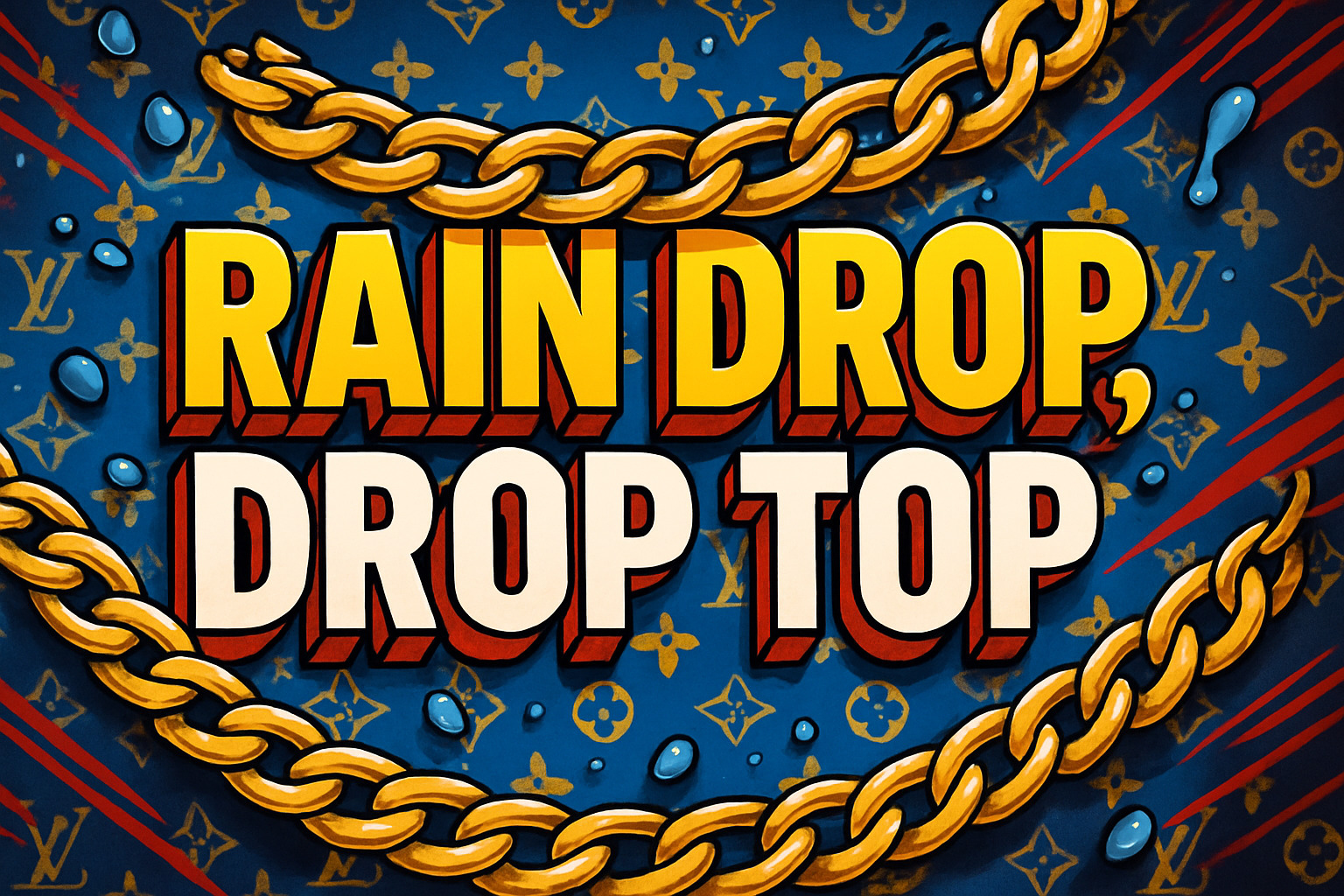
Bourgie shows up more in academic writing or when people want to sound more formal. Writers and scholars often choose this spelling when they’re discussing class theory or making serious social commentary, since it stays closest to the original French “bourgeois.”
The pronunciation difference matters more than you might think. That soft BOO-zhee sound tends to carry more negative vibes about pretension and putting on airs. The harder BOO-jee pronunciation often celebrates luxury and success instead of criticizing it. These subtle phonetic shifts developed naturally as different communities adopted the word for their own purposes.
When Being “Bougie” Is Praise or Shade
Here’s where bougie gets really interesting – the same word can be a compliment, an insult, or just a neutral description depending on who’s saying it and how they mean it. Understanding these nuances helps you steer the social landscape around this loaded term.
Positive bougie is all about celebrating good taste, success, and self-care. When your friend says “I’m feeling bougie today” while booking a facial or splurging on organic skincare, they’re embracing quality as a form of self-love. This usage completely flips the original critical meaning and turns it into something empowering.
Negative bougie calls out what people see as pretension, unnecessary extravagance, or social climbing. When someone rolls their eyes at a $20 avocado toast and mutters “That’s so bougie,” they’re critiquing what feels like showing off or being out of touch with regular people’s budgets.
Neutral bougie just describes upscale or fancy things without any judgment attached. “This spa is pretty bougie” might simply mean it’s expensive and neat, without implying criticism or celebration.
Generational differences play a huge role in how people interpret bougie. Younger people, especially those influenced by social media and hip-hop culture, often use it positively. They’ll post #bougie selfies from luxury experiences without any irony or shame. Older generations, particularly those who remember the term’s origins in social critique, might still hear negative undertones.
Community context matters enormously too. Within Black communities where the term originated, calling someone bougie can carry complex meanings about authenticity, success, and social responsibility. Outside those communities, people might use it more casually without understanding its cultural significance.
Embracing a Bougie Lifestyle Without the Attitude
At Beyond Beauty Lab, we believe there’s a meaningful difference between appreciating quality and being pretentious about it. The secret to positive bougie living lies in mindful choices and genuine appreciation rather than status signaling or showing off.
Bougie beauty means investing in products that actually improve your well-being and align with your values. This might include clean beauty formulations with sustainable packaging or artisanal ingredients that deliver real results. The focus should be on what these products do for your health and happiness, not what they signal to your Instagram followers.
More info about clean beauty shows how celebrities are embracing this mindful approach to luxury beauty – choosing products based on quality and values rather than just price tags.
Bougie wellness encompasses practices like yoga memberships, meditation retreats, and high-quality supplements. What makes these choices genuinely bougie rather than just expensive is prioritizing your mental and physical health over cheaper alternatives that don’t deliver the same benefits.
Travel represents another area where bougie choices can be meaningful rather than superficial. Getting your passport and exploring different cultures reflects curiosity and personal growth, not just collecting Instagram opportunities. The goal becomes expanding your worldview and understanding, not just accumulating status symbols.
Food culture offers countless opportunities for positive bougie experiences too. Supporting local restaurants, trying artisanal ingredients, or learning about wine can be about genuine appreciation for craftsmanship and culture rather than showing off wealth or sophistication.
The key is intention. When you choose bougie options because they genuinely improve your life, support your values, or bring you joy, you’re embracing the positive side of luxury. When you choose them mainly to impress others or signal your status, that’s when bougie tips into pretentious territory.
Cultural Impact: Bougie in Pop Culture & Everyday Life
The cultural impact of bougie extends far beyond its dictionary definition. This word has become a lens through which we examine class, race, authenticity, and aspiration in American society. What started as community-specific slang has evolved into a mainstream cultural touchstone that reveals our complex relationship with success and materialism.
Music has been the primary vehicle for bougie entering mainstream consciousness. Beyond the famous Migos track “Bad and Boujee,” artists like Kesha, Drake, and countless others have woven variations of the term into their lyrics. Each usage adds layers of meaning and introduces the word to new audiences who might never have encountered it otherwise.
Television and film have acceptd bougie as shorthand for character development and social commentary. Shows like “The Fresh Prince of Bel-Air” explored bougie themes decades before the term became mainstream, examining tensions between different class backgrounds within Black families. RuPaul’s Drag Race has also popularized the term, celebrating bougie as a form of self-expression and glamour.
Social media has transformed bougie into a hashtag lifestyle that’s impossible to ignore. Instagram posts tagged #bougie showcase everything from luxury vacations to expensive coffee drinks. This digital usage often strips away the term’s critical origins, turning it into a simple celebration of upscale experiences. The irony isn’t lost on many users who simultaneously accept and critique this change.
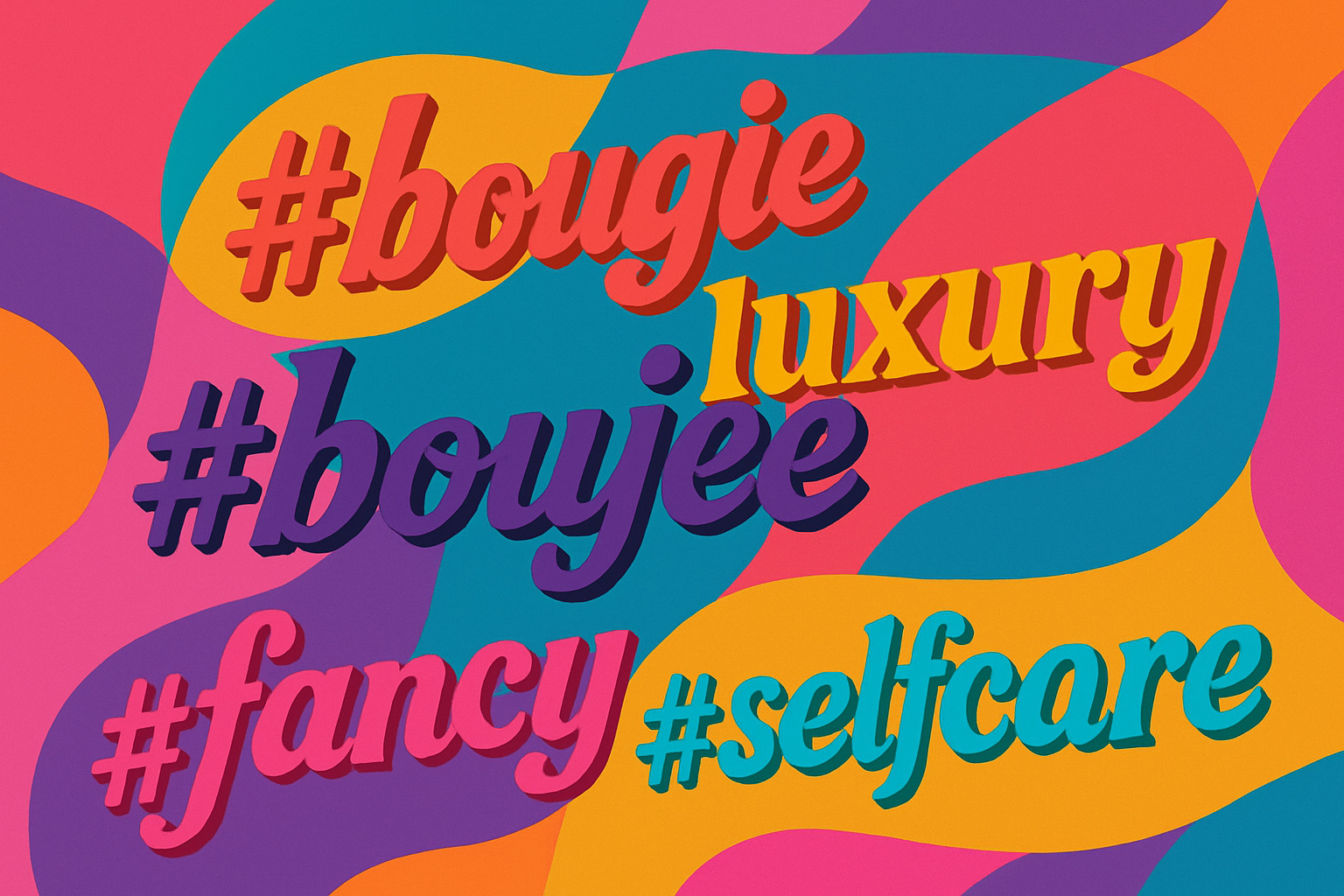
Regional variations in slang usage reveal how bougie travels and changes meaning across different communities. In some areas, it remains primarily a critique of pretension and social climbing. In others, particularly in urban centers and among younger demographics, it’s become a neutral descriptor for anything upscale or expensive.
The term has also found its way into marketing and branding strategies. Companies now deliberately position products as “bougie” to appeal to consumers who want to feel sophisticated and successful. This commercial adoption represents another evolution in the word’s meaning, though it sometimes feels disconnected from the term’s roots in social critique.
Voice of San Diego article on bougie events shows how the term has even entered political and social commentary about public events and spending.
Real-World Bougie Behavior Checklist
Understanding bougie behavior helps decode social signals and cultural references that pop up everywhere from TikTok to casual conversations. The behaviors that typically get labeled as bougie in contemporary culture span across food, beauty, wellness, and lifestyle choices.
In the field of food and drink, bougie behavior might include ordering oat milk lattes with specific temperature requests, photographing elaborate brunch spreads for social media, or choosing restaurants based on their Instagram aesthetics rather than just the food. There’s also the tendency to drink expensive bottled water or kombucha and create elaborate smoothie bowls with superfood toppings that cost more than some people’s entire meals.
Beauty and wellness represents a major category of bougie behavior. This includes multi-step skincare routines with high-end products, regular spa treatments and professional facials, and boutique fitness classes like SoulCycle or Pure Barre. Many people also invest in meditation retreats and wellness workshops, along with organic, clean beauty products that prioritize ingredients and sustainability.
More info about wellness retreats shows how this trend has evolved from pure luxury into a legitimate wellness practice that many people genuinely value.
Lifestyle choices that get the bougie label often involve shopping at farmers markets for organic produce, choosing Target over discount stores for household goods, and traveling with multiple skincare products and supplements. There’s also the preference for decorating with artisanal or handmade items, supporting small businesses over chain stores, and generally prioritizing experiences over material possessions.
The key distinction that determines whether these behaviors feel positive or negative is motivation. Are these choices driven by genuine values and appreciation, or by a desire to signal status and superiority? The same behavior can be bougie in a positive or negative way depending on the intention behind it. When someone invests in high-quality, sustainable products because they align with their values, that feels different from someone who buys expensive things just to show off their wealth.
At Beyond Beauty Lab, we believe the best approach to bougie living focuses on mindful choices that genuinely improve your well-being rather than just your social media presence.
Frequently Asked Questions about Bougie
What does “bougie” mean today?
If you’ve been wondering about the meaning of bougie in today’s world, you’re not alone! This trendy term has become incredibly popular, but its current usage is much more flexible than its historical roots suggest.
Today, bougie primarily describes someone who enjoys expensive tastes, acts fancy, or gravitates toward luxury items and experiences. But here’s where it gets interesting – the meaning can shift dramatically depending on who’s using it and how they say it.
When your friend posts a photo of their $12 green juice and captions it “feeling bougie today,” they’re celebrating a moment of self-indulgence. This represents the positive side of modern bougie culture – it’s about treating yourself well and enjoying quality experiences.
On the flip side, if someone rolls their eyes at that same green juice post and mutters “so bougie,” they’re critiquing what they see as unnecessary extravagance or showing off. Same word, completely different energy.
The modern usage really breaks down into three main areas. There’s social media bougie, where people showcase luxury experiences and expensive products as lifestyle goals. Then there’s cultural bougie, which covers appreciating fine dining, art, travel, and sophisticated entertainment. Finally, we have wellness bougie – investing in high-quality health and beauty products, spa treatments, and self-care practices that prioritize your well-being.
What’s fascinating is how far the term has traveled from its origins as social critique. Today’s bougie has become a more general way to describe anything considered fancy or upscale, without necessarily carrying the sting it once had.
Is calling someone bougie rude?
The short answer? It depends on so many factors that there’s no simple yes or no. Context is absolutely everything when it comes to bougie as a descriptor.
Within close friendships, calling someone bougie is often just playful teasing about their expensive tastes or fancy choices. When your bestie orders the most elaborate item on the brunch menu and you laugh and say “you’re so bougie,” it’s usually affectionate ribbing rather than genuine criticism.
But step outside that comfort zone of close relationships, and things get trickier. Using bougie to describe someone you don’t know well, or in formal settings, could definitely come across as judgmental or dismissive. Nobody wants to feel like their choices are being criticized by strangers.
The cultural background of everyone involved matters enormously too. Since bougie originated in African American communities as a form of social commentary, there are layers of meaning and sensitivity that might not be obvious to everyone using the term today. Being aware of these cultural roots helps avoid unintentional offense.
Intent and delivery make the biggest difference in how your words land. There’s a world of difference between giggling “You’re so bougie!” while someone orders an expensive coffee versus using the term to dismiss or belittle someone’s background or choices. Tone of voice, facial expressions, and your relationship with the person all play huge roles.
How do you pronounce bougie?
Here’s where things get fun – there are actually two accepted ways to pronounce bougie, and your choice says something about your familiarity with the word’s journey through different communities.
The traditional pronunciation is BOO-zhee, with a soft “g” sound that’s similar to the “s” in “pleasure.” This pronunciation connects directly to the French “bourgeois” origin and tends to sound more formal or academic. If you’re discussing the historical meaning of bougie or using it in a more serious context, this pronunciation fits perfectly.
But you’ll also hear plenty of people say BOO-jee with a harder “j” sound, especially when they’re using the “boujee” spelling that hip-hop culture popularized. This pronunciation sounds more casual and contemporary, and it’s become incredibly common since mainstream culture acceptd the term.
Both pronunciations are widely accepted, so you really can’t go wrong with either choice. The BOO-zhee version might appeal to you if you appreciate the word’s linguistic history, while BOO-jee might feel more natural if you finded the term through music or social media.
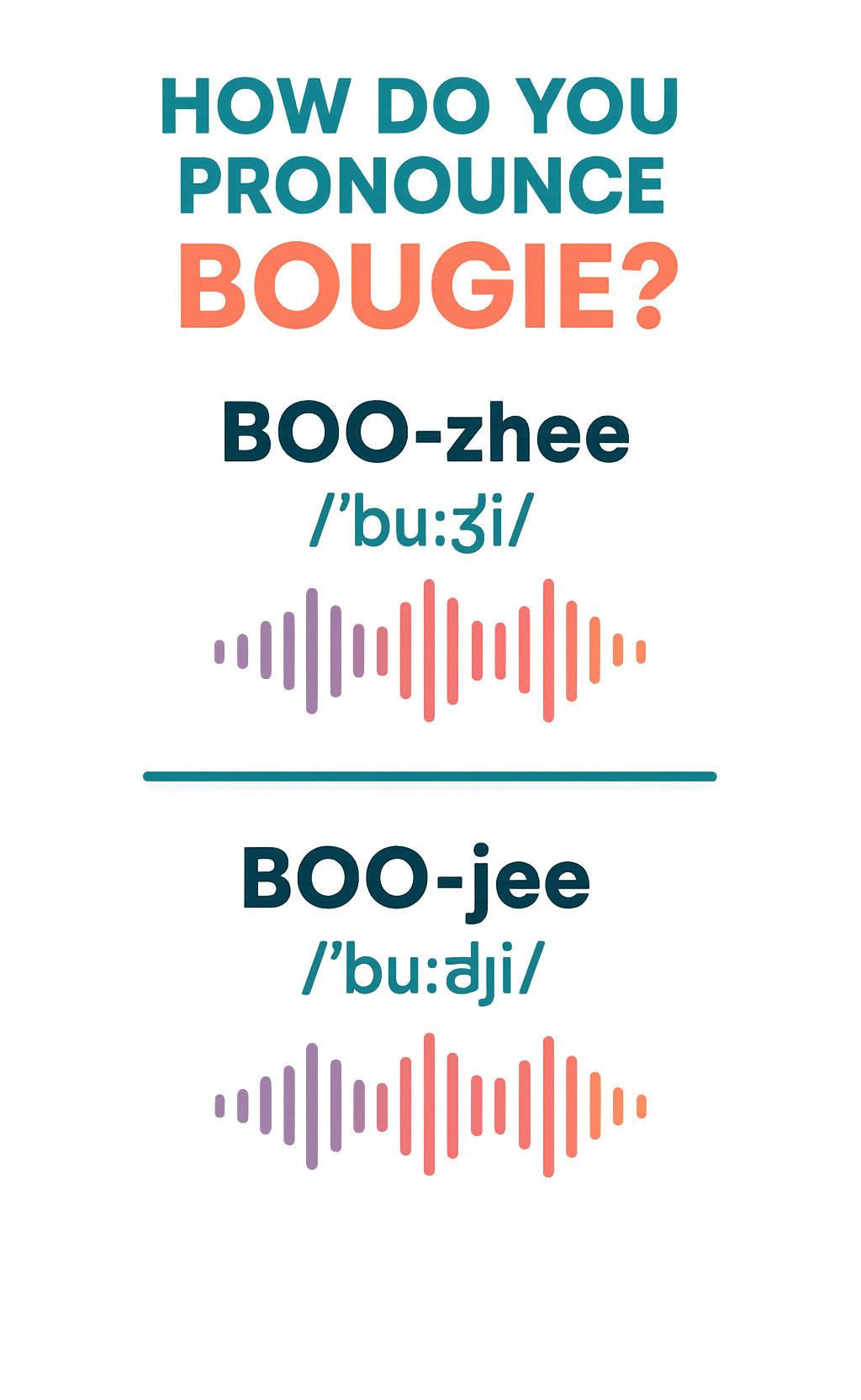
The beauty of language evolution means that bougie has room for both pronunciations. Choose whichever feels more authentic to you and your community – after all, language is about communication and connection, not rigid rules.
Conclusion
Understanding the meaning of bougie takes us on a fascinating journey from medieval Algerian candles to today’s social media hashtags. This single word captures so much about class, culture, authenticity, and what we aspire to in American society.
At Beyond Beauty Lab, we believe there’s a beautiful way to accept quality and self-care without the pretentious attitude. Whether you’re investing in clean beauty products, planning wellness retreats, or simply treating yourself to something special, what matters most is genuine appreciation rather than showing off.
The way bougie has evolved from social criticism to lifestyle celebration really reflects how we’ve changed our thinking about success, luxury, and self-worth. Today’s usage often flips the script – turning what used to be a put-down into a positive expression of self-love and achievement.
Language never stops changing, and bougie will probably develop even more meanings and flavors as time goes on. What stays the same is its power to get us talking about who we are, what matters to us, and how we show up in the world.
Whether you own being bougie or prefer to sidestep the label completely, understanding its cultural weight helps you steer modern social situations with more awareness and sensitivity. The term’s rich backstory reminds us that words pack more punch than their dictionary definitions – they mirror our values, dreams, and connections with each other.
More info about must-have wellness products for those interested in exploring quality self-care options that align with mindful consumption values.
The next time someone calls your skincare routine bougie or you’re debating whether to splurge on that expensive coffee, remember – the choice isn’t really about the money. It’s about intention, appreciation, and staying true to your values while respecting the cultural significance of the language we use.

